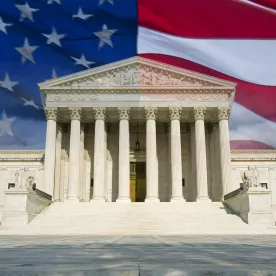On March 30, 2016, the U.S. Supreme Court in Luis v. United States, No. 14-419, held that pretrial restraint of untainted assets needed by a criminal defendant to retain counsel of choice violates a Sixth Amendment right to counsel. This decision, however, left unresolved the broader question of whether the United States may restrain untainted assets not needed to hire counsel.
In United States v. Chamberlain, No. 5:14-CR-128-2H, the federal District Court for the Eastern District of North Carolina held that Luis does not bar the United States in restraining such assets. In Chamberlain, the government moved for a post-indictment pretrial restraining order against Chamberlain’s untainted substitute assets pursuant to 21 U.S.C. Section 853(e). “Substitute assets” are those which are untainted by alleged criminal conduct, but which the government seeks to forfeit to replace exhausted or unreachable tainted assets. Both the defendant and government agreed that the untainted substitute asset in question, a parcel of land, was not needed by Chamberlain in order to secure criminal defense counsel.
Section 853(e) allows a court to enter a restraining order or injunction to preserve assets that are subject to criminal forfeiture. Relying on the Supreme Court’s decision in United States v. Monsanto, 491 U.S. 600 (1989), many courts have allowed entry of a pretrial restraining order under Section 853(e) against assets that are not connected to the underlying crime and are not needed to hire counsel.
The defendant in Chamberlain maintained that these court’s decisions based on Monsanto are now incorrect in light of Luis. The defendant argued that Justice Breyer’s language/analysis in the plurality decision of Luis foreclosed pretrial restraint of any substitute asset under Section 853, thus narrowing the scope of the Monsanto decision. This new argument, in effect, also would overrule Fourth Circuit precedent that permits pretrial restraint of untainted substitute assets, subject to Sixth Amendment concerns.
Disputing the defendant’s opposition, the government narrowly interpreted the Luis decision and maintained that Luis was inapplicable since Chamberlain raised no Sixth Amendment issue. The District Court ultimately agreed with the government, but expressed some uncertainty in light of the Luis decision. In fact, the court said while it “agrees that the Supreme Court may in fact interpret Section 853 in this way in the future, it has not yet ruled on this issue and has not upset applicable Fourth Circuit precedents governing the instant question presented before this court.”
The District Court’s Order has been appealed to the Fourth Circuit. Whether the United States may restrain untainted assets that are not needed to hire counsel remains an open question after Luis. Jackson Lewis attorneys are experienced in defending white collar and government enforcement matters and are available to advise companies on the scope of law enforcement seizure rights, asset forfeiture, and the Mandatory Victims Restitution Act.




 />i
/>i
